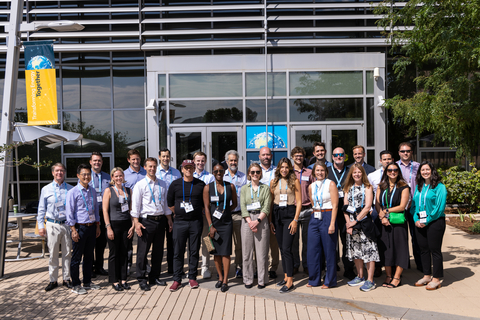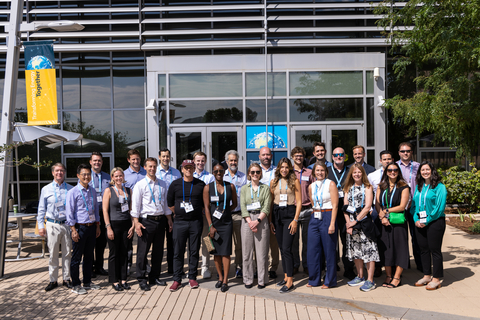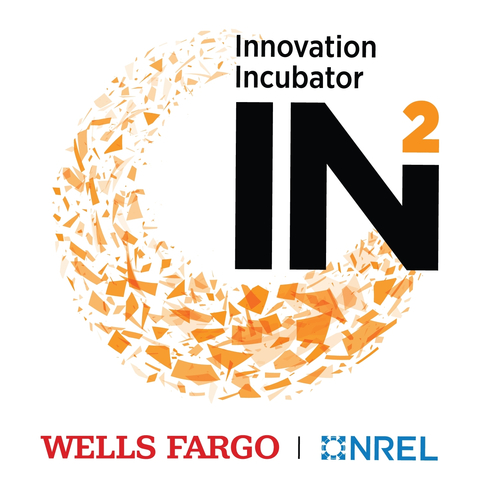DENVER--(BUSINESS WIRE)--The Wells Fargo Innovation Incubator (IN²), a $50 million clean technology program funded by the Wells Fargo Foundation and co-administered by the U.S. Department of Energy’s National Renewable Energy Laboratory (NREL), announced today it selected 10 organizations to participate in the inaugural cohort of the new Scalable Tech Track program for cleantech adoption.
NREL and Wells Fargo founded IN² in August 2014 with an initial focus on commercializing solutions that reduce the energy impact of commercial buildings and later expanded its focus to advance technologies that address the sustainable production of agriculture and housing affordability. After 10 years of commercializing emerging clean technologies, IN² is launching the Scalable Tech Track, in collaboration with Overlay Build, to address demand-side market barriers and increase widespread adoption of cleantech solutions.
“Organizations are under increasing pressure to decarbonize, facing significant costs and reputational risks if they fail to act,” said Sarah Derdowski, IN² program manager at NREL. “Despite these pressures, many organizations still aren’t adopting clean technologies fast enough. The new Scalable Tech Track is designed to help organizations accelerate cleantech adoption and collaborate in an effort to address urgent climate challenges together.”
The Scalable Tech Track supports both corporations and communities in the pursuit of sustainability goals by providing practical implementation guidance and access to validated technologies. IN² will assist participants with a comprehensive approach to cleantech adoption that includes identifying pain points, providing third-party validation from NREL, fostering collaborative peer working groups, and building clearer pathways for implementation, all while prioritizing equity and environmental justice.
The inaugural cohort is comprised of organizations from across the globe, spanning a variety of sectors and industries that share the common goal of decarbonizing the built environment through collaboration and innovation. The 10 companies and communities selected include:
- Avangrid: Interested in continuing to build a culture of innovation and scouting new technologies. Headquartered in Orange, Connecticut.
- CBRE: Focused on solutions that simplify complexity, improve efficiency, and accelerate the decarbonization of real estate portfolios at scale. Headquartered in Dallas, Texas.
- Coconino County: Will develop and implement a comprehensive school and district-based decarbonization plan to address climate change through mitigation. Located in north central Arizona.
- Digital Realty: Committed to reducing their power consumption and expanding their reach without expanding their carbon footprint through technology. Headquartered in Austin, Texas.
- Galvanize Climate Solutions: A first-of-its-kind sustainable real estate platform aiming to invest in well-located, high-quality real estate to reduce the property’s carbon footprint, improve cash flow, and increase asset values. Headquartered in San Francisco, California and New York, New York.
- Intermountain Health: Strives to help people live the healthiest lives possible by providing high-quality and affordable healthcare while being a resilient health system with a large footprint and sustainability goals. Headquartered in Salt Lake City, Utah.
- Prime Data Centers: Seeks innovators that help create a world that thrives, where technology and sustainability advance together. Headquartered in Dallas, Texas.
- Schneider Electric: A global leader in electrification and digitization for smart buildings and data centers, looks to provide technologies to accelerate decarbonization in built environments. U.S. headquarters in Boston, Massachusetts.
- Southern Company: The leading provider of clean, safe, reliable, and affordable energy solutions for more than 9 million customers with a goal of net-zero greenhouse gas emissions by 2050. Headquartered in Atlanta, Georgia.
- The University of Colorado Boulder: Seeks to make its massive building footprint, both old and new, carbon neutral by no later than 2050.
The participating organizations will engage in a program from August to December 2024 consisting of virtual and in-person workshops, focused on how to implement new technologies in the built environment through digitization and change management. By the end of the program, the participants will have an in-depth strategy on how to uptake new innovation and compete to receive up to $250,000 to conduct pilot projects with IN² startups or others based on their specific needs.
More information about the startups that will be matched with each organization and the pilot projects will be announced in January 2025. IN² is currently accepting applications from cleantech startups ready for large-scale pilots with at least one year of post-revenue traction.
“Wells Fargo is proud to support the expansion of the IN² program to advance cleantech adoption,” said John Moon, senior vice president and sustainable philanthropy leader at Wells Fargo. “We’ve learned firsthand how valuable the types of pilot programs that these organizations will undertake are by working with a number of startups in the IN² portfolio. The participating organizations will receive actionable steps and knowledge from the experts at NREL to support them as sustainability leaders in their respective industries.”
To learn more about IN², visit https://in2ecosystem.com/.
About the Wells Fargo Innovation Incubator (IN²)
The Wells Fargo Innovation Incubator (IN²) is a $50 million clean technology program funded by the Wells Fargo Foundation and co-administered by the U.S. Department of Energy’s National Renewable Energy Laboratory. IN² advances clean technologies from ideation to commercialization—validating emerging startups in the built environment and infrastructure sectors while facilitating connections with end users who receive practical implementation guidance that supports their sustainability goals. IN²’s mission is to foster innovation and accelerate the pace of market adoption of clean technologies to address urgent climate challenges. For more information, visit in2ecosystem.com.




